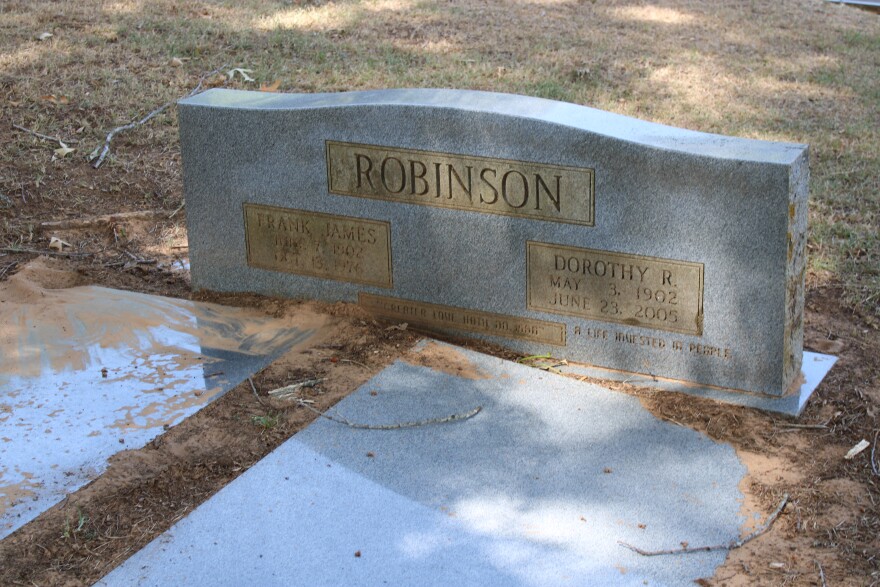Dorothy Robinson was one of the last people in Palestine, Texas to learn that her husband, Frank, was dead. Her first clue that something was terribly wrong was when her plane was landing in Tyler, the closet commercial airport to Palestine.
“I could always see him standing out because the plane was so small. It's just like, you're sitting in a car and I didn't see him. And when I got out and my sister and her husband and a friend and his daughter was standing there,” she said.
“And I said, 'Where is Frank?' And my sister just threw her arms around me. She didn't say anything, but the friend's daughter said 'Dead.' And I said, 'Car wreck?' She said, 'No, somebody killed him.' And, uh, I said, 'Well, get my luggage. I'm ready.'”
Frank J. Robinson was a civil rights advocate in East Texas. In 1976 he died under mysterious circumstances from a shotgun blast to the head. It was deemed a murder by the Palestine police chief but then it was called a suicide. There’s a lot of evidence that doesn’t make sense.
When Frank died, Dorothy had been out of town for a couple of education conferences. She was the chairperson for the Governor’s advisory council for technical vocational education. The first conference was in San Antonio, and the other was in Minneapolis. The week before his death Frank drove Dorothy to the Tyler airport.
“When on the way to the car he stopped at the back door. And he looked and he said, 'You know, you're still a pretty good-looking old woman.' And I said, 'Boy, come on here. I've got to catch in the early flight.' And when we went to Tyler and I can't remember to this day, if I kissed him goodbye, I imagine I did because it was a habit of doing it, but I can't remember,” Dorothy said.
“But the last time I saw him, I had gotten on the little plane and I saw him talking to another man as he was going to his car. He stopped. And that was the last time I saw him,” she said.
“I called him from San Antonio on Saturday night. And of course, he had my schedule and where I was to stay, but I reminded him again that I was going to Minneapolis, and I would be back Thursday. And I called him Sunday afternoon after I got to Minneapolis. And he said, 'We've had a little cold snap. And I can't find my long underwear.' And I said, 'Well, it's not that cold. Is it?' He said, 'Well, I be comfortable in it.' And I told him what drawer it was in. He said, 'Well, I looked in there' and I said, 'You just didn't dig deep enough in the drawer.' I said, 'But you won't freeze to death till I get there.'
“I said, 'I'll be there Thursday.' And I said, 'My plane landed just 10 o'clock' or whatever. And he repeated the time. And I think that was the last I know... the last conversation we had...was probably the last thing I heard him say, except 'goodbye.’”
Frank J. Robinson died in 1976. This was a time before our constant connectivity. That’s why Dorothy was in the dark about Frank’s death. There were no cell phones, no text messaging and no email. Pagers or beepers wouldn’t become popular until the '80s.
Also, Dorothy’s arrival was on the same day that Frank’s dead body was discovered on the floor of their garage – Thursday October 14. So there really was no way for Dorothy to know before her plane touched down what was waiting for her in Palestine and back at her home.
“When I came, they had removed his body and, cleaned up the garage and everything. And the police were criticized later for having that cleaned up so soon because they said they didn't have, didn't have time to do a good examination of the scene. The police were all around asking questions and that kind of thing. And at first the chief had told some of the people, including Timothy Smith, it was a clear case of homicide."




